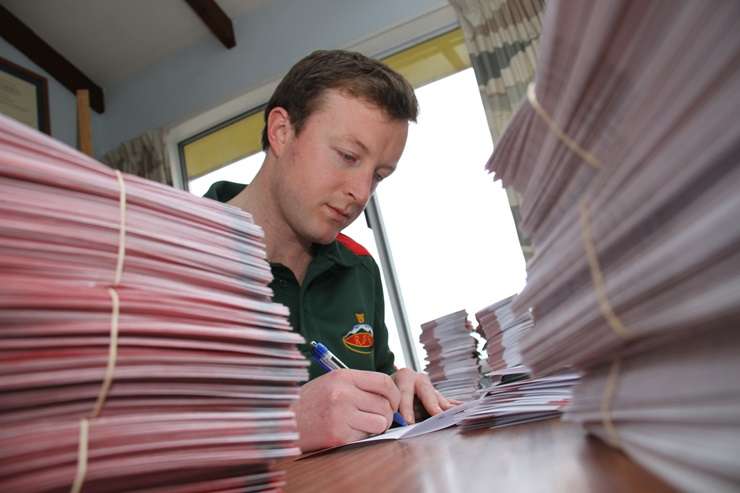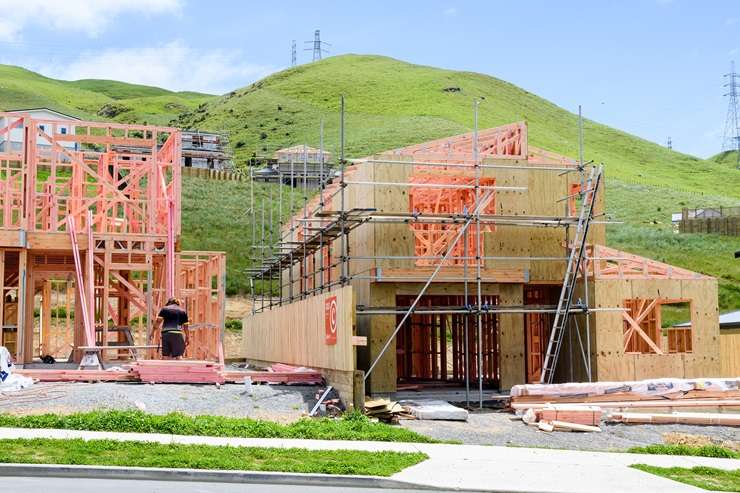There’s much debate around the future of housing in New Zealand. Many Kiwis - both young and old - believe homeownership is an unobtainable dream and that the country is not building enough houses. Most parties agree there is some sort of crisis but what that crisis means and how it can be solved is open to interpretation.
OneRoof spoke to Labour's housing spokesman Kieran McAnulty about the political challenges the country faces on housing affordability, and Labour's record on house building and helping first-time buyers into a home. What follows are the highlights of a wide-ranging discussion, with some of the questions abbreviated for sense.
The interview was also conducted before McAnulty's own housing arrangements came under the spotlight, with the media reporting earlier this month that he was claiming a parliamentary allowance for renting Lower Hutt property owned by his wife.
Start your property search
Q: Are successive governments at fault for the housing shortage?
When I was at school in Masterton I remember doing a social studies project on how we would cope with a declining population in Masterton, and then from 2009 onwards pretty much after the Global Financial Crisis, the population started to grow, and so too did property prices. If they knew what they know now, I think probably they would have acted differently.
If the John Key government, when it did become evident, built the same level of houses that we [Labour] did during the last six years, then we wouldn't have as much of a crisis as we do.
Discover more:
- Debt to income ratios a reality for first-time buyers
- Budget 2024: What the tax cuts mean for the housing market
- Simon Bridges' former home for sale for $4m-plus
But, to be honest, I don't see there's much point in looking backwards and casting blame. We know what we need to do and we should just get on with it and unfortunately, the current government isn't doing it.
Q: How far forward do politicians look ahead as to housing needs?
It's fair to say that the further you go out it's less likely that your predictions will be accurate. But if we scale that back to its most basic form, it's very clear we will need to build a lot of houses for a long period of time and as demographics change then the type of houses you build can be adjusted, but what won't change is the need to build more houses.
It's across the board, so we need more social houses, we need more affordable rentals, we need affordable homes to purchase. That won't change regardless of how far you're looking out.
Q: How long will it take to fix the problem?
Well, it will be more than 10 years, that's for sure, and so there are three parliamentary terms within that, possibly longer, and so any plan to address the housing crisis can't be done within a three-year window. It will need to be much longer than that.
I believe the Housing Minister [Chris Bishop] when he says he wants to see more homes built. I just don't think the way they're going about it will result in that. We need broad agreement as to the mechanisms with which to achieve it and at the crux of that is the level of government expenditure.

McAnulty in 2014 when he stood as a candidate for Wairarapa. "I'm fortunate enough to own my own home. I didn't when I entered Parliament." Photo / Andrew Bonallack

The major parties agree that New Zealand isn't building enough houses. Photo / Getty Images
Q: What do think about the Government’s decision to reinstate interest deductibility for existing investment properties?
We're very critical of the move to reinstate interest deductibility on existing properties because the evidence is quite clear: by removing that on existing properties but keeping interest deductibility on new builds we saw investment shift from existing stock into the building of new houses so that stops that competition and allows first-time buyers to actually enter the market and not compete with investors, and it leads to more houses being built.
So it acted as an incentive. By reintroducing it to existing stock that incentive is no longer there and we're already starting to see the number of consents drop. Once interest rates stabilise, the fear is that there will be increased competition on existing stock, keeping first-time buyers out of the market. All the while the houses that we need to be built aren't being built.
Q: Some people with good jobs say buying a house is not feasible. How do you respond?
And that's so sad. Everyone who works for a living should think the possibility of buying a home is realistic, but also there will always be some people who feel that it isn't, then the provision of long term stable secure housing is the least that they can expect and so that's why we believe so strongly in the provision of social housing. There are some people who simply can't work, or won't realistically expect to buy their own home but should be able to expect to be able to be in secure housing, and at the moment across the board it doesn't look very bright for them.
I'm fortunate enough to own my own home. I didn't when I entered Parliament and for a long time on my pecuniary interest form the only thing I declared was a student loan and so I'm very conscious that if I wasn't in the position I am I wouldn't have probably been able to buy a house as a single person at the time. I often reflect on that.

Housing Minister Chris Bishop and McAnulty in 2021. Both are huge cricket fans and, according to McAnulty, have a good working relationship, even across the divide. Photo / Mark Mitchell
Q: There are millennials in the House – Chris Bishop is one and you are another. Could you sit down and thrash out some of the issues, or is that not how it works?
It certainly can do. I've got good relationships across, well, every party in the house there are people I would get on with really well but like any large group of people there are also people there that I don't get on with that well.
Chris Bishop is one that I do get on with to the point where if I feel we can have constructive conversations on housing, and we have, but then it falls down on policy.
If there's something I think is going to work, I will say so. If it just needs a bit of a tweak to be effective, then that's how I will approach it.
- Click here to find properties for sale















































































